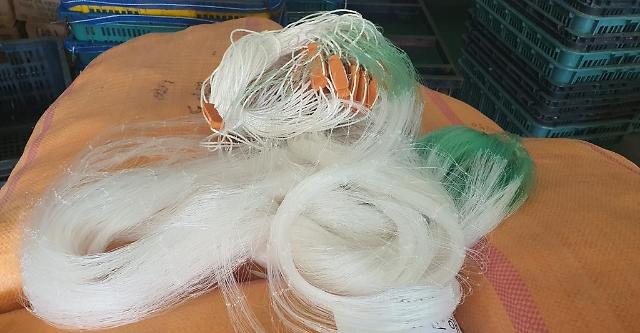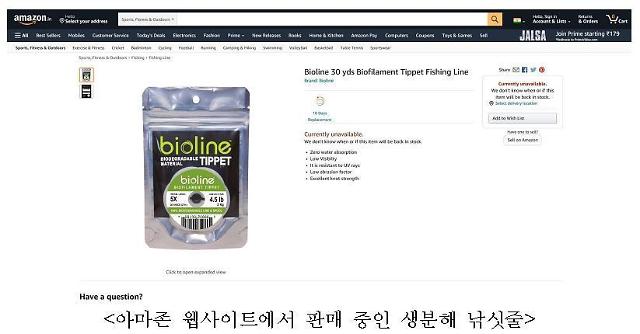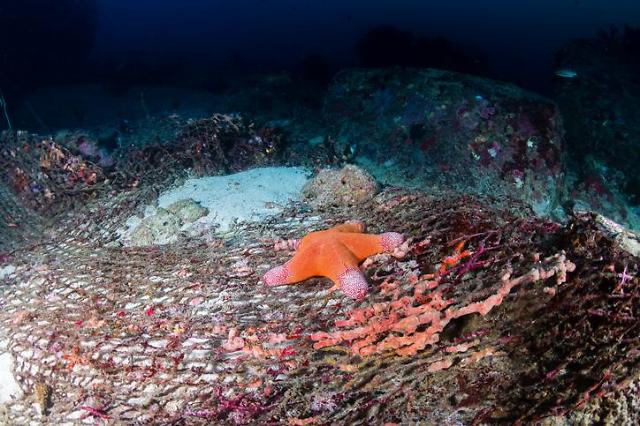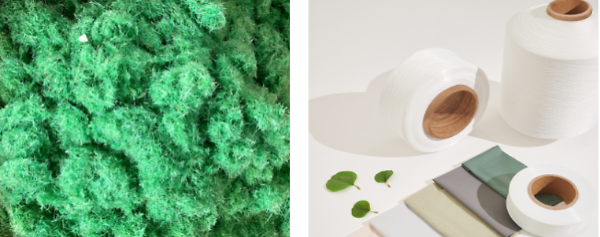
[Courtesy of Boryeong City]
Lost or abandoned plastic fishnets and fishing equipment are called ghost fishnets that seriously pollute the ocean by trapping living organisms including fish and seaweeds. The deadly traps mainly stay on the seabed to tangle onto anything that comes nearby. Sometimes boats' propellers get caught up in hunks of ghost fishnets.
Environmentally-friendly fishing equipment is being commercialized around the world, but they are mainly shunned by fishermen because of the high costs. Equipment made of biodegradable materials is about 1.5 times more expensive than ordinary plastic equipment. Also, biodegradable fishnets are weaker and easier to snap off when excessive force is applied compared to nylon nets.
The southwestern coastal city of Boryeong will spend 330 million won ($258,965) on distributing biodegradable fishnets with a total length of some 1.2 million meters in June 2022. The biodegradable fishnets will disintegrate into water and carbon dioxide when it is exposed to seawater for about two years.
"We plan to reduce microplastics and ocean pollution through the distribution of biodegradable fishnets for an affordable price," Boryeong Vice Mayor Koh Hyo-yeol said in a statement on May 10.




